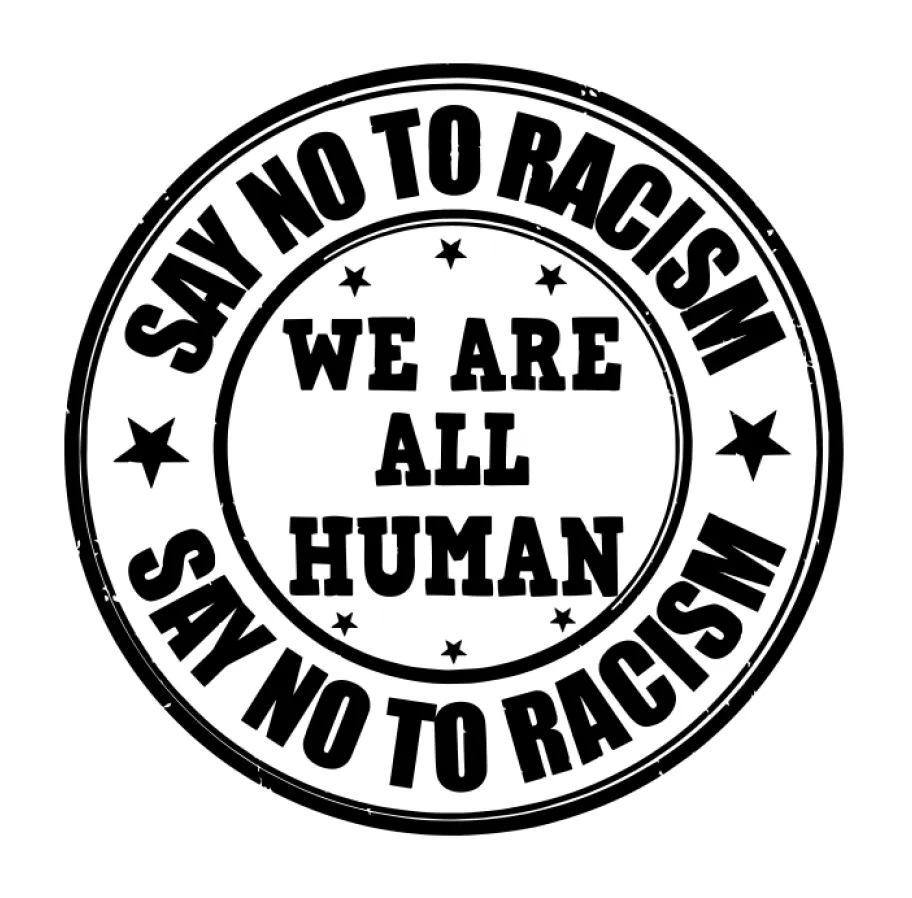
❌ Ignoring racism will never fix it
It's like ignoring any problem really. If the problem is certain to go away with time, like a temporary pain for example, maybe that's fine. But problematic human behavior doesn't just go away; it needs to be incentivized. In this case for example, the viewer correctly went on to gather some evidence and report it to twitch.
❌ Staying within your comfort zone also doesn't fix racism; it could actually enhance it
That's a tough thing to do for introverts as myself, but true. In the case of the Pakistani viewer one commenter suggested him to join a fellow Pakistani's live stream, but imagine if everybody interacted only with people that he considers belong to the same subgroup. I mean, if for example all Pakistani viewers only watched Pakistani live streamers, maybe some Pakistanis start talking trash about a particular Pakistani town; then what? should these Pakistanis be further divided by town? Then maybe by family? Where does this stop? It stops right at the beginning, with the decision to stay inside your comfort zone.
❌ Banning words like the N-word and similar actions do not address the root cause of the problem
If you ban something, it's value goes up in the black market; that's one of the simplest lesson's i learned about economics as a student. Youtube, twitch and all these platforms have banned the N-word, so what did the Canadian live streamer in our example do? He found another word, one that is difficult to ban but still gets his message accross. "Smelly". It's not that i'm against banning things in general, just that there are better solutions in this case. I still remember fighting some kid in middle school and then the teacher had to make us work things out. But my teacher didn't just say "You are not allowed to fight in this classroom again, or you will be suspended"; that probably would result in us continuing our fight after school was over. What my teacher did is actually assign a group homework to just the two of us! Sure, me and the other kid at first just went through the motions. Words like "Let's just get this over with" were exchanged. But by the end of the homeword we had discovered things that we did the same way and things in which we complemented each other, resulting in a new found level of respect for each other.
❌ If only the victims of racism fight against it, the racists' beliefs will be reinforced
Of course the victims of racism will fight against it, but if non-victims join in that will give their fight more legitimacy. I mean, think about it: A murderer would of course claim he didn't commit any crime, but only impartial jury members can give legitimacy to his statement by pronouncing him innocent. So what can we do about it? Anything really, no matter how small a gesture! For example I myself, as a white european male, could maybe write an article on steemit about it 😉
⏰ TL;DR:
Racism is not something to be ignored, but rather something to be acted upon. That goes not only for victims of racism, but everyone of us; even if it's a small good gesture, eventually it will add up. Acting alone might not be enough though; how we choose to act might be just as important. I'm not against actions like banning certain words, but this doesn't really address the root cause of the problem; it may even reinforce it, judging by how people tend to crave things more when they get banned. Actions that have people of different cultures, sex, beliefs etc working together though, now that could be something!